It is difficult but not to notice splashed all over the tv and phone screens the coverage of Russia and Ukraine war. Naturally, the images of war evoke feelings of unease and concerns in even those of us who are so far geographically removed from Ukraine. Aside from the obvious and unfortunate fact that a military conflict always exacts a humanitarian cost it is also important to compute the economic costs. While the humanitarian costs in a war are largely limited to ground zero of the conflict and nearby regions, the economic costs can be far reaching and can have a global affect. In this letter, we will discuss the potential economic costs of this war and where these costs can show up in investment portfolios.
Let’s firstly discuss the key reasons for this war according to our assessment of the available facts and details. Vladimir Putin’s (Russian President) number one grudge right now is the progressive eastward expansion of the membership to The North Atlantic Treaty Organization (NATO). The organization, NATO, that started out in 1949 among 12 nations has since then attracted new members, especially in the past two decades, from Eastern Europe and the Balkans.
You can see in the figure 1 below that Ukraine is the last key country standing to become a NATO member. This is something Putin has repeatedly called for as unacceptable given the NATO membership would entitle Ukraine to openly host NATO bases with all the associated arms build-up right at the Russian border. Ukraine holds geopolitical significance for Russia as a buffer state to the West.
Figure 1:

Ukraine has repeatedly declared its aspiration to join NATO dating back as far as 2008. In December 2021, Putin blasted NATO at his annual end-of-year press conference. “Any further NATO movement to the east is unacceptable”, Putin was quoted. Putin has repeated his call for a ban of NATO expansions since, but to no avail. What Putin wants from NATO and Ukraine is a declaration that Ukraine will never join NATO, something the latter have so far not offered.
Consequently, since September 2021, Russian troop numbers were building up right along the Russia-Ukraine border including in Belarus (Russian ally), readying to march into Ukraine and bring its government under Russian influence or control. Russia’s military is now in Ukraine and from accounts so far, Ukrainian forces are no match for Russia and Ukraine’s capital (Kyiv) should fall to Russian control in the coming days or weeks. In the absence of US and NATO forces on the ground in Ukraine, which is not currently on the cards as Ukraine is not a NATO member and other more expedient reasons, it does look Russia will soon have full control over Ukraine.
Secondly, one wonders why NATO and US are not on the ground in Ukraine helping to push Russia backwards. Surely, a special emergency UN resolution would give the NATO forces the license to assist Ukraine. Well, the real reasons for not further stoking the war may be quite pragmatic. It is not an inconsequential fact that Russia currently has the largest cache of nuclear warheads in the world per the chart below. Russia also has the fifth largest military force of 850,000 active military personnel. China with its largest military force of 2million active personnel has also thrown tacit support for Russia so far. So it would seem an irrational response from NATO and US to send troops in Ukraine or engage Russian military directly so long as Putin is keeping his adventure contained to Ukraine.
Figure 2: Number of Nuclear Warheads by Country

Source Statista
The other reason why the world is hoping for a quick war contained to Ukraine, and it may be that, is that Russia remains a leading exporter of Oil & Gas to the world and specifically to Europe. You can see on the figure 3 below, that Russia is the largest exporter of gas and LNG in the world and supplies significant amounts of gas to countries like Germany, France, and range of other European countries.
Figure 3: Leading gas exporting countries in 2020, by export type (in billion cubic meters)
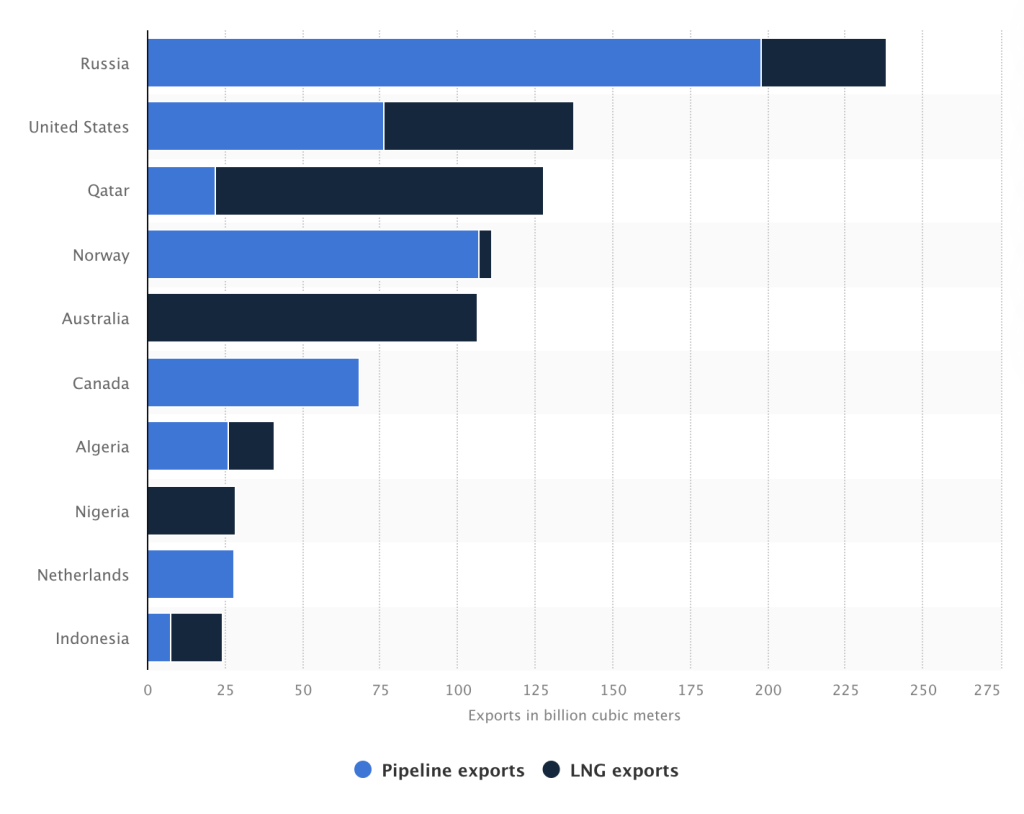
Source: Statista
So far, the US’s sanctions on Russia have not included Russia’s energy exports to the world as doing that would exact a heavy economic cost globally through soaring oil and gas prices around the world and sink the global economy into an avoidable economic recession. It is worth knowing that Russia continued to supply energy to the world during the cold war years and also after it recently annexed Crimea (Southern Ukraine) in 2014. Russia and the world have thus far shown the ability to strike a balance to maintain critical energy trade links on one hand while imposing economic sanctions in wider trade links including the banking and finance channels on the other hand.
So, what are the implications for investment portfolios?
The share market’s response to the war so far has mostly been mute. You can see on the chart below that Australian shares have largely moved sideways for the past six months and the reaction to the Ukraine-Russia war is not material when you compare to how adversely the market reacted to the last major issue being the onset of the Covid-19 pandemic in March 2021. Please also see Figure 5 below which re-visits the impact of 18 major geo-political events on markets since world war 2. On average, the total sell-off from these events was -5.4% in the US market (good proxy for Australia) and it takes approximately 15 days for the US stocks (S&P 500) to bottom.
Figure 4: Australian Share Market index (ASX200) as at intraday 02 March 2022
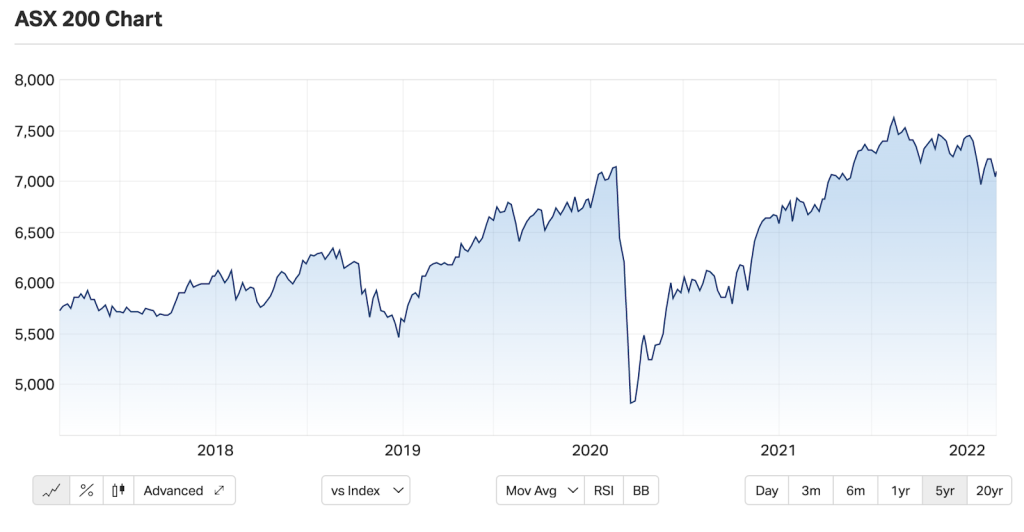
Figure 5: Impact of major geo-political events on US share market
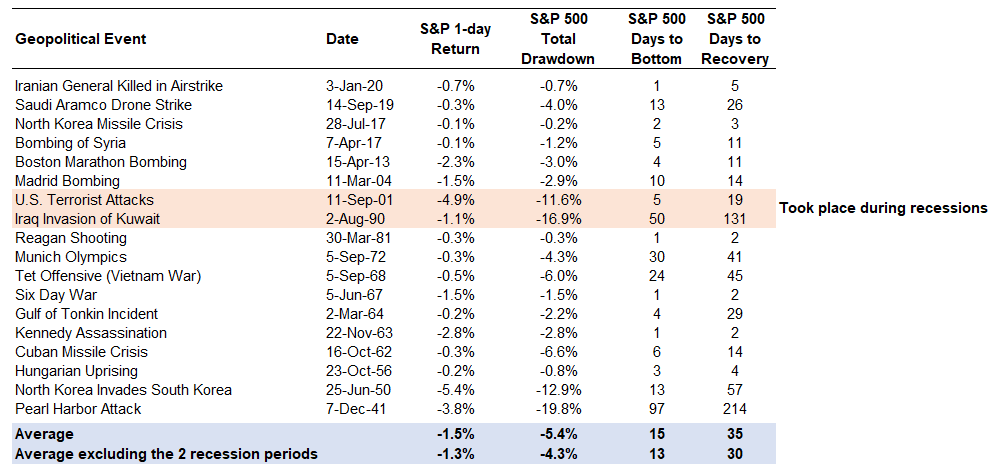
Source: Bloomberg Intelligence
The main issue for Australian investors is the outlook for inflation and increases in interest rates in Australia. We will discuss interest rates shortly but let us just firstly show you the positive impact of the Russia-Ukraine war on the energy stocks in the market.
You can see the in the Figure 6 below that energy stocks have delivered solid returns after struggling in 2020 and 2021. So far in 2022, the returns in the energy, utilities, and materials sector have been positive while consumer discretionary stocks and high growth stocks have given back some returns from the past couple of years as they respond to possibly subdued outlook for the consumer spending in a rising interest rate environment. Again, these varying movements should illustrate to investors the need to have diversified portfolios as invariably different sectors of the market respond differently to economic conditions from one year to another.
Figure 6: ASX 200 sectors year-to-date returns
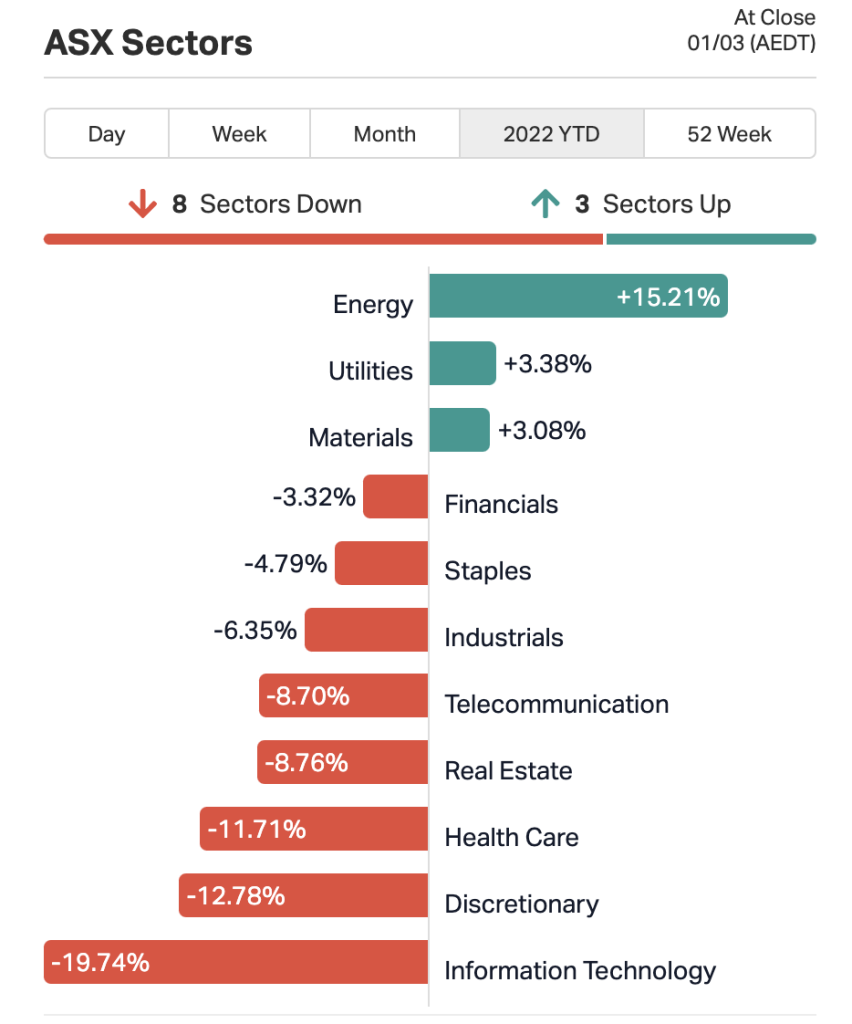
Now let’s turn our attention quickly to the outlook for interest rates in Australia. The market is expecting Reserve Bank’s official interest rate will rise to around 1.5% by this time next year from its current low of 0.1%. This is already in investor’s expectations. For income investors, interest rate increases will finally be a source of some benefit as their income returns will increase so long as they are invested in variable rate (floating rate) debt. We do think the interest rate increases will be limited as generally the consumer has much larger debt levels to service than even a few years ago, so the consumers’ ability to absorb rising interest rates is limited. Beyond investing in debt & hybrid securities, income investors will likely have to continue relying on alternatives, property, infrastructure and share portfolios to augment their income requirements.
- Monthly Wrap: US attempting to quell China’s control on semiconductors and AI - July 9, 2024
- April 2024 Monthly Wrap: Economic growth slows to a near 2-year low as inflation growth delays interest rate cuts - May 10, 2024
- Monthly Economic Wrap: Rate cuts, a Chinese nuclear arsenal and impending TikTok ban - April 5, 2024




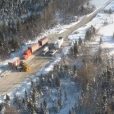


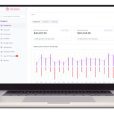



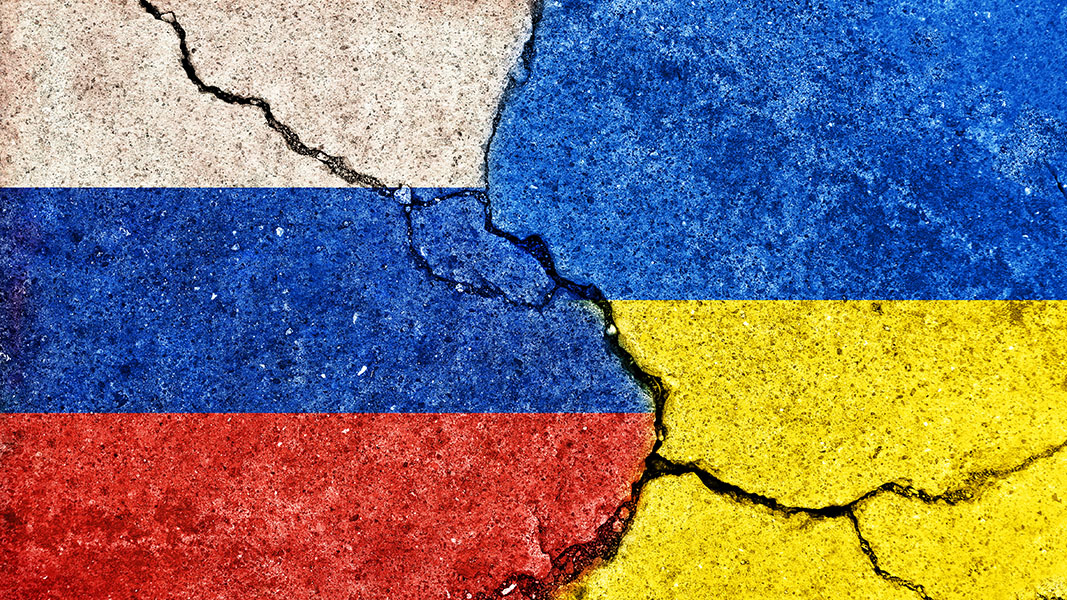

Leave a Comment
You must be logged in to post a comment.